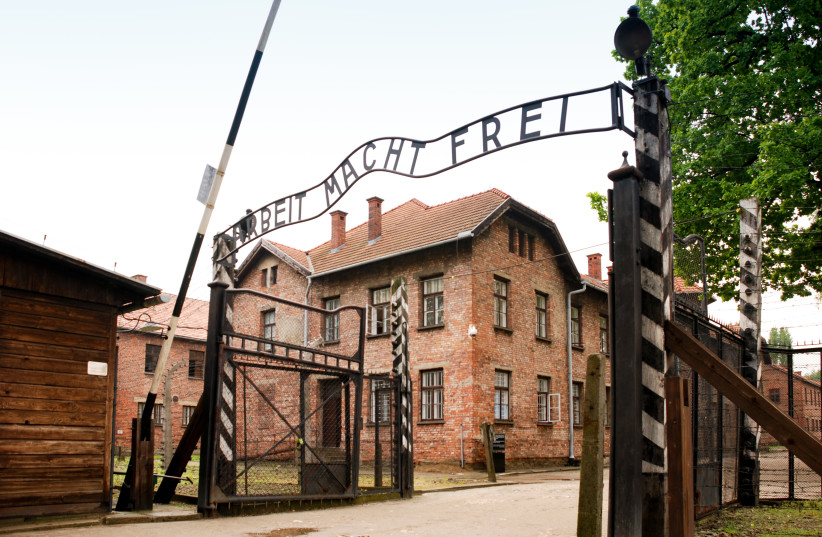There is no such thing as hereditary enemies. As we mark the UN-recognized International Day of Human Fraternity on February 4, this profound conviction rings truer than ever.
It was bequeathed to me by my father, Dr. Samuel Pisar, along with a warning: Remain vigilant!
One of the youngest survivors of Auschwitz, Dachau and Majdanek concentration camps, Pisar made it his life’s mission not just to bear witness to the Holocaust, but to warn future generations of all races, colors and creeds against the dark forces that could destroy our world as they once destroyed his.
Despite everything he endured, he was a man of great optimism. He maintained a deep faith in humanity and did not feel that we are condemned to fratricidal behavior.
His was a powerful idea, which gained traction at the height of the Cold War: If we could carve out even small areas of dialogue and exchange with our ideological foes, then we might just avert another Final Solution with new plagues of toxic gas, ballistic missiles and nuclear mushroom clouds.

What would he say today, as renewed ethnic tensions creep up in ways both obvious and insidious? Every day, we hear of xenophobic attacks, vitriolic insults and desecrations. In our increasingly confused societies contaminated by fake news, there is a palpable frenzy that carries eerie echoes of the 1930s. Seventy-seven years after the fall of the Third Reich, are we still able to draw lessons from this bloody past?
Despite this bleak backdrop, I do not feel we are doomed. In fact, I believe more fervently than ever in my father’s humanistic lesson.
Since my father left us in 2015, I have felt a visceral duty to heed his call to vigilance: To do all I can to combat the rise of intolerance. This imperative led me to take the helm of Project Aladdin, which works to counter antisemitism and all forms of hate and extremism by teaching the universal lessons of the Holocaust and building bridges of knowledge among Jews, Christians and Muslims.
It also drew me to join the judging committee of the Zayed Award for Human Fraternity which, each year, recognizes courageous individuals and organizations who strive to build more harmonious societies.
As a result, I have seen up close what can happen when men and women of different faiths, beliefs and traditions join hands for the greater good. Not by erasing or ignoring their differences, nor by putting their heads in the sand and pretending that geopolitical tensions don’t exist, but simply by taking time to ponder the importance of universal values like human fraternity, tolerance and mutual respect.
Last October, members of the Zayed Award for Human Fraternity judging committee were invited to Rome to meet the Award’s two honorary recipients: His Holiness Pope Francis and His Eminence the Grand Imam of Al-Azhar Professor Ahmed Al-Tayeb.
His Holiness Pope Francis received us with kindness and humility, reiterating his belief that fraternity is the new frontier of humanity. He equates it with staying true to one’s own convictions, while finding the ability to listen and to understand the convictions of others. Or, in my own more prosaic terms: If I want you to listen to me, then I must listen to you.
THAT IS precisely what I was intent on doing the next day. The Grand Imam of Al Azhar Professor Ahmed Al-Tayeb – the leading Sunni religious authority and leader of the oldest Islamic institution in the world – received me for a private audience at his residence in Rome.
I did not quite know what to expect, since I had been informed that I was the first Jewish woman to formally meet the Grand Imam. But he immediately put me at ease with a kind, gentle welcome and an outstretched hand. We drank tea and he spoke about Judaism with erudition and respect over the next hour. I emerged from that encounter with a newfound sense of hope.
A month later, under the auspices of Project Aladdin, I traveled to the United Arab Emirates (UAE) and Bahrain with a small delegation comprising Jews, Muslims and Christians. It was my first visit to this region and it opened my eyes and my soul to a new universe of possibilities.
We were received in Abu Dhabi, UAE, and Manama, Bahrain, with warmth and interest – and I must add, with a slight sense of urgency. The feeling I got is that time is of the essence, that we need to act now to curb the reach of malevolent zealots, and work toward an even warmer peace between Muslims and Jews in the wake of the Abraham Accords.
This is about much more than differences in religion. I come at it from a decidedly secular perspective. The values of coexistence, respect and dignity articulated in the Document of Human Fraternity are much needed in the current state of world affairs. As a student of political science, I actually see this as a form of collective security and, to put a realpolitik filter on it, I believe that it is in our interest, as Western democracies, to take this appeal seriously.
On all continents, extremists of different stripes (religious fanatics, supremacists and fabulists of all persuasions) are very effective at making noise. Even though they are often minority voices, they are clever about grabbing the spotlight and spewing their hateful venom. It is high time the moderates from different cultures and religions pool their energies and start making their own, more constructive noise.
To me, this would be the greatest realization of human fraternity.
The writer is chair of Project Aladdin, an international NGO that works to counter antisemitism, and all forms of hate and extremism by teaching the universal lessons of the Holocaust and building bridges of knowledge among Jews, Christians and Muslims. She was recently appointed by President Biden to the US Holocaust Memorial Council.
